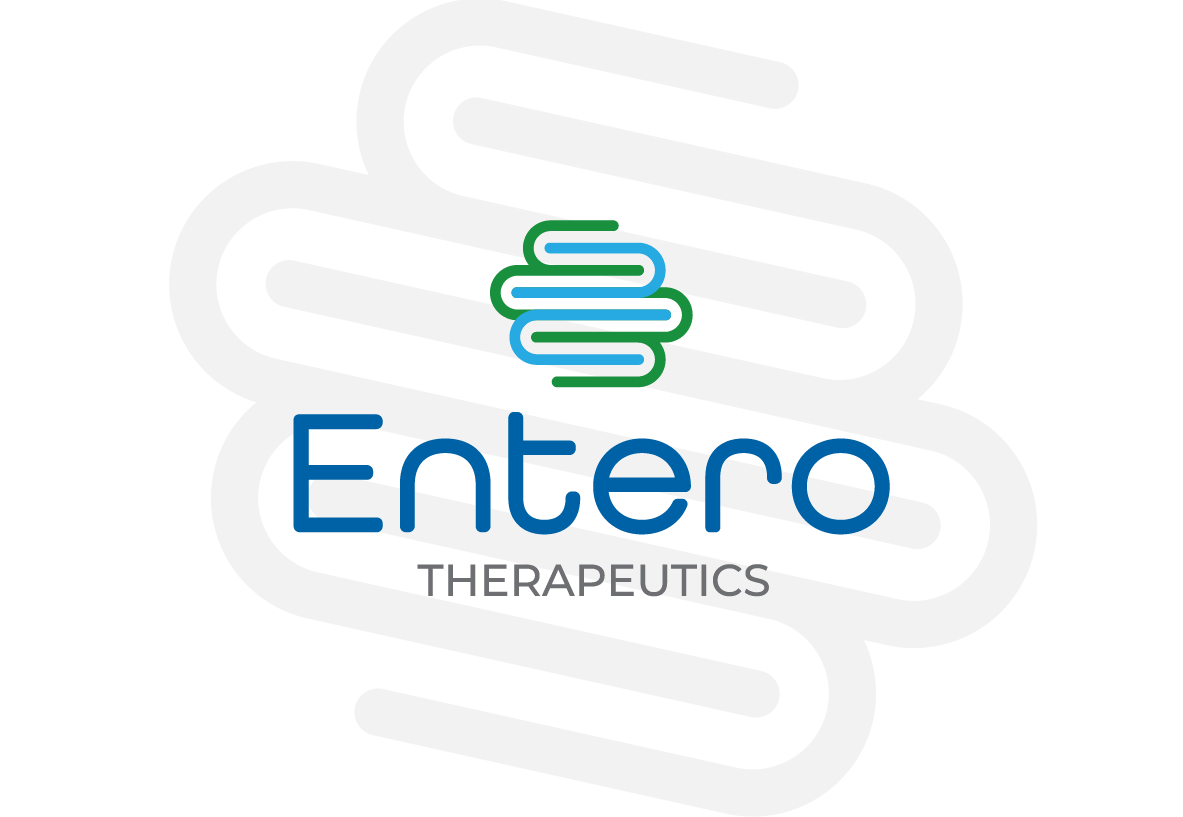PIPELINE / DEVELOPMENT STRATEGY
-
LatiglutenasePre-INDPhase 1Phase 2Phase 3
-
Celiac Disease
Description:
Latiglutenase (IMGX003) is an orally administered mixture of two gluten-specific recombinant proteases that degrades gluten proteins into small physiologically irrelevant fragments that is designed to be administered as an adjunct to a gluten-free diet (GFD).
Celiac disease (CD) is an autoimmune disorder of the small intestine resulting from intolerance to gluten proteins, afflicting nearly 1% of most populations (Schuppan 2009, Rubio Tapia 2010). The principal physiology is villous atrophy in the small intestinal epithelium triggered by the ingestion of cereal grains, such as wheat, rye, or barley. CD has no known cure and the only effective therapy is adherence to a lifelong GFD. Yet in practice it is virtually impossible to totally avoid gluten (Syage 2018).
Patients are continuously exposed to low levels of gluten that can cause symptomatic pain and suffering and persistent histologic damage that can lead to long-term health issues such as lymphoma, bowel cancer, osteoporosis, anemia, malnutrition, etc. (Kelly 2015, Green 2015). The burden of the disease is enormous on the individuals as well as their family and friends, who must adjust to the dietary and recovery needs of CD individuals.
The Phase 3 clinical development plan for latiglutenase has been reviewed by the GI Division of the U.S. Food and Drug Administration (FDA), with initiation of the Phase 3 trials expected in the second half of 2024. This timing could enable latiglutenase to enter the multibillion-dollar celiac disease market by 2027.
-
CapeserodPre-INDPhase 1Phase 2Phase 3
|
Description: Capeserod is a selective 5-HT4 receptor partial agonist, which Entero Therapeutics is repurposing and developing for multiple GI conditions. Based on the biological evidence of expression of 5-HT4b receptor subtype in human GI tract, Entero Therapeutics believes that capeserod may directly or indirectly initiate the peristaltic or secretory reflex by releasing neurotransmitters that can decrease colonic transit time and improve bowel movement. |
-
AdrulipasePre-INDPhase 1Phase 2Phase 3
-
Exocrine Pancreatic Insufficiency (EPI) in patients with cystic fibrosis and chronic pancreatitis
Description:
FW-EPI (adrulipase) is a recombinant lipase enzyme administered as an oral, non-systemic biologic capsule for the treatment of exocrine pancreatic insufficiency (EPI) associated with cystic fibrosis (CF) and chronic pancreatitis (CP). Adrulipase is derived from the Yarrowia lipolytica yeast lipase and is designed to break up fat molecules in the digestive tract of EPI patients so that they can be absorbed as nutrients.
EPI is a condition characterized by deficiency of the exocrine pancreatic enzymes, resulting in a patient’s inability to digest food properly, or maldigestion. The deficiency in this enzyme can be responsible for greasy diarrhea, fecal urge and weight loss. There are more than 30,000 patients in the U.S. with EPI caused by cystic fibrosis according to the Cystic Fibrosis Foundation and approximately 90,000 patients in the U.S. with EPI caused by chronic pancreatitis according to the National Pancreas Foundation.
The digestive standard of care for both CF and CP patients with EPI are commercially-available pancreatic enzyme replacement therapy (PERT) pills, which are made from the pancreases of pigs. However, a substantial number of patients do not achieve normal absorption of fat with PERTs. Moreover, PERTs require the administration of as many as 40 pills per day and have potential issues with Black Box safety warnings due to the animal sourcing.
In developing adrulipase, Entero Therapeutics is seeking to provide CF and CP patients with a safe and effective therapy to control EPI that is non-animal derived, offers the potential to dramatically reduce their daily pill burden, and can be manufactured on demand at high volumes safely and with a high degree of reproducibility.
Entero Therapeutics is developing adrulipase as a monotherapy and in combination with PERT. Entero Therapeutics expects to initiate a Phase 2 clinical trial by mid-2022 to investigate an enhanced formulation of adrulipase as a monotherapy for the treatment of EPI.
-
Exocrine Pancreatic Insufficiency (EPI) in patients with cystic fibrosis and chronic pancreatitis
Description:
FW-EPI (adrulipase) is a recombinant lipase enzyme administered as an oral, non-systemic biologic capsule for the treatment of exocrine pancreatic insufficiency (EPI) associated with cystic fibrosis (CF) and chronic pancreatitis (CP). Adrulipase is derived from the Yarrowia lipolytica yeast lipase and is designed to break up fat molecules in the digestive tract of EPI patients so that they can be absorbed as nutrients.
EPI is a condition characterized by deficiency of the exocrine pancreatic enzymes, resulting in a patient’s inability to digest food properly, or maldigestion. The deficiency in this enzyme can be responsible for greasy diarrhea, fecal urge and weight loss. There are more than 30,000 patients in the U.S. with EPI caused by cystic fibrosis according to the Cystic Fibrosis Foundation and approximately 90,000 patients in the U.S. with EPI caused by chronic pancreatitis according to the National Pancreas Foundation.
The digestive standard of care for both CF and CP patients with EPI are commercially-available pancreatic enzyme replacement therapy (PERT) pills, which are made from the pancreases of pigs. However, a substantial number of patients do not achieve normal absorption of fat with PERTs. Moreover, PERTs require the administration of as many as 40 pills per day and have potential issues with Black Box safety warnings due to the animal sourcing.
In developing adrulipase, Entero Therapeutics is seeking to provide CF and CP patients with a safe and effective therapy to control EPI that is non-animal derived, offers the potential to dramatically reduce their daily pill burden, and can be manufactured on demand at high volumes safely and with a high degree of reproducibility.
Entero Therapeutics is developing adrulipase as a monotherapy and in combination with PERT. Entero Therapeutics recently reported results from its Phase 2 clinical trial of adrulipase in combination with PERT. Data demonstrated a meaningful improvement in coefficient of fat absorption (CFA), suggesting that that combination therapy may benefit CF patients with severe EPI.
-
NiclosamidePre-INDPhase 1Phase 2Phase 3
-
Ulcerative Proctitis and
Ulcerative ProctosigmoiditisDescription:
FW-UP is a niclosamide-based, oral small molecule anti-inflammatory inhibitor therapy for the treatment of ulcerative proctitis (UP) and ulcerative proctosigmoiditis (UPS). FW-UP is currently being investigated in a Phase 2b clinical trial study to study the safety and potential efficacy of niclosamide in patients with UP and UPS.
FW-UP has the potential to safely treat UP and UPS, two types of ulcerative colitis, a chronic inflammatory bowel disease (IBD) consisting of fine ulcerations in the inner mucosal lining of the large intestine that do not penetrate the bowel muscle wall. UPS causes inflammation in the colon and rectum, while UP is confined only to the rectum. Symptoms include weight loss, fatigue, abdominal pain and cramps, rectal pain and bleeding, and diarrhea, although constipation can also develop as the body struggles to maintain normal bowel function.
UP and UPS can occur at any point throughout life, with a high occurrence in young children and then again around 40-50 years of age. Progression of this disease to ulcerative colitis, extending farther up the bowel to involve the sigmoid colon, occurs in about 30-50% of patients. Although there is a range of treatments to help ease symptoms and induce remission, there is no cure.
Preliminary results from a low-dose cohort of 17 subjects demonstrated FW-UP to be well tolerated, with a durable therapeutic effect. A high dose cohort of the Phase 2a study is currently enrolling.
Niclosamide is a prescription small molecule drug listed as an essential medicine by the World Health Organization (WHO). Niclosamide has been safely used on millions of patients for other clinical indications.
-
Grades 1 and 2 Immune Checkpoint Inhibitor-Associated Colitis
Description:
FW-ICI-AC is a niclosamide-based, oral, small molecule anti-inflammatory inhibitor therapy for the treatment of immune checkpoint inhibitor (ICI)-associated colitis and diarrhea in metastatic cancer patients. The PASSPORT clinical trial, a Phase 2a study to determine the safety and potential efficacy of niclosamide in the treatment of ICI-AC, received FDA IND clearance in Q4 2021.
Immune checkpoint inhibitors (ICIs) are monoclonal antibodies that target down-regulators of the anti-cancer immune response and have revolutionized the treatment of a variety of malignancies. The global market for ICIs was over $22 billion in 2019 and growing rapidly.
The incidence of immune-mediated colitis (IMC) ranges from 1% to 25% depending on the type of ICI and whether they are used in combination. Up to 30% of ICI patients develop diarrhea, which can progress to colitis. For example, between 25% and 30% of patients taking ipilimumab (Yervoy) developed diarrhea and roughly 8% to 12% developed colitis.
FW-ICI-AC has the potential to safely treat Grade 1 and Grade 2 ICI-associated colitis and diarrhea and prevent its progression to more serious and potentially fatal later stages. The overall goal of early niclosamide treatment is to enable advanced oncology patients to remain on, or spend minimal time off, their ICI treatment programs without interruption.
Niclosamide is a prescription small molecule drug listed as an essential medicine by the World Health Organization (WHO). Niclosamide has been safely used on millions of patients for other clinical indications.
*Anticipated
- Gut Journal: Vol 69, Issue 6: 2020; Gut Journal: Vol 69, Issue 6: 2020; JAMA Network: Vol 3, Issue 6: 2020; Lancet Gastroenterol Hepatol: Vol 5, Issue 5: 2020; Cheung Gastroenterology: Vol. 159, Issue 1: 2020
- New York Times. (7/1/21) https://www.nytimes.com/interactive/2020/world/coronavirus-maps.html
- Davis, et al. “Characterizing Long Covid in an International Cohort: 7 Months of Symptoms and their Impact”. https://www.medrxiv.org/content/10.1101/2020.12.24.20248802v2.full.pdf
- Jeon S, Ko M, Lee J, Choi I, Byun SY, Park S, Shum D, Kim S. 2020. Identification of antiviral drug candidates against SARS-CoV-2 from FDA-approved drugs. Antimicrob Agents Chemother 64:e00819-20. https://doi.org/10.1128/AAC.00819-20.
- Immune Checkpoint Inhibitors Market, ResearchAndMarkets.com, 2020.
- Wang et al. Patients with ICPI-induced diarrhea or colitis have improved survival outcomes. J Immunother Cancer. 2018; 6: 37. Som et al., World J Clin Cases. Feb 26, 2019; 7(4): 405-418
- Wang DY, Ye F, Zhao S, et al. Incidence of immune checkpoint inhibitor-related colitis in solid tumor patients: a systematic review and meta-analysis. Oncoimmunology 2017; 10: e1344805; Som et al., World J Clin Cases. Feb 26, 2019; 7(4): 405-418
CLINICAL TRIALS
|
|
Ongoing Clinical Trials |
|
Latiglutenase: Prospective, Randomized, Double-Blind, Placebo-Controlled, Crossover Study in Symptomatic CD Patients
Adrulipase: Pursuing Parallel Monotherapy and Combination Therapy Pathways
|
|
|
Completed Clinical Trials |
|
Latiglutenase as a Treatment for Celiac Disease
Adrulipase: Pursuing Parallel Monotherapy and Combination Therapy Pathways
Niclosamide: Pursuing Anti-Viral GI Pathways
Niclosamide: Pursuing Anti-Inflammatory GI Pathways
|








